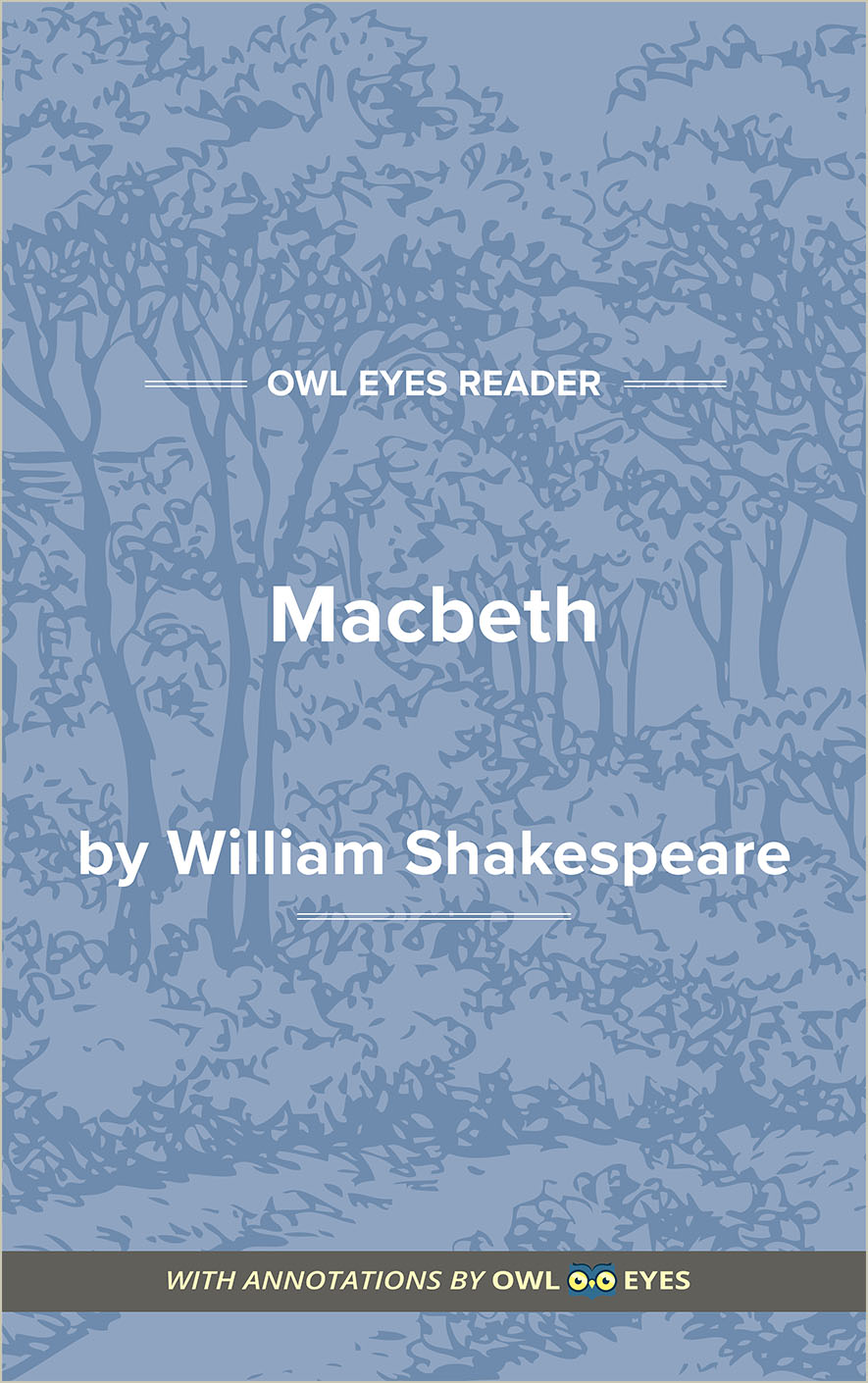Analysis Pages
Plot in Macbeth
Plot Examples in Macbeth:
Act I - Scene II
🔒"Thane of Cawdor..." See in text (Act I - Scene II)
"Began a fresh assault...." See in text (Act I - Scene II)
Act I - Scene III
🔒"Speak, I charge you...." See in text (Act I - Scene III)
"That he seems rapt withal..." See in text (Act I - Scene III)
"The earth hath bubbles as the water has, And these are of them. Whither are they vanish'd?..." See in text (Act I - Scene III)
Act I - Scene IV
🔒"The Prince of Cumberland..." See in text (Act I - Scene IV)
Act I - Scene VI
🔒"[Before Macbeth's castle Hautboys and torches.]..." See in text (Act I - Scene VI)
Act I - Scene VII
🔒"If it were done when ’tis done, then ’twere well It were done quickly...." See in text (Act I - Scene VII)
Act II - Scene I
🔒"Go bid thy mistress, when my drink is ready, She strike upon the bell. Get thee to bed...." See in text (Act II - Scene I)
"Their candles are all out..." See in text (Act II - Scene I)
Act II - Scene II
🔒"Donalbain..." See in text (Act II - Scene II)
"[The same.]..." See in text (Act II - Scene II)
"I laid their daggers ready;..." See in text (Act II - Scene II)
Act II - Scene III
🔒"the pauser reason...." See in text (Act II - Scene III)
"I'll devil-porter it no further...." See in text (Act II - Scene III)
"[The same.]..." See in text (Act II - Scene III)
"Macduff..." See in text (Act II - Scene III)
"naked frailties..." See in text (Act II - Scene III)
"Knocking within..." See in text (Act II - Scene III)
"Our knocking has awaked him..." See in text (Act II - Scene III)
"PORTER..." See in text (Act II - Scene III)
"destroy your sight..." See in text (Act II - Scene III)
Act III - Scene I
🔒"mine eternal jewel Given to the common enemy of man..." See in text (Act III - Scene I)
"Ride you this afternoon?..." See in text (Act III - Scene I)
"BANQUO:..." See in text (Act III - Scene I)
Act III - Scene II
🔒"Let your remembrance apply to Banquo..." See in text (Act III - Scene II)
Act III - Scene III
🔒"To the direction just...." See in text (Act III - Scene III)
"Exeunt...." See in text (Act III - Scene III)
Act III - Scene IV
🔒"Our duties and the pledge...." See in text (Act III - Scene IV)
"And to our dear friend Banquo, whom we miss..." See in text (Act III - Scene IV)
"twenty mortal murders on their crowns..." See in text (Act III - Scene IV)
"Are you a man?..." See in text (Act III - Scene IV)
" The table's full..." See in text (Act III - Scene IV)
" Thanks for that..." See in text (Act III - Scene IV)
Act III - Scene V
🔒"Loves for his own ends, not for you...." See in text (Act III - Scene V)
Act III - Scene VI
🔒"To kill their gracious father?..." See in text (Act III - Scene VI)
"To hear the men deny't...." See in text (Act III - Scene VI)
"he was dead...." See in text (Act III - Scene VI)
"Exeunt...." See in text (Act III - Scene VI)
Act IV - Scene I
🔒"woman born..." See in text (Act IV - Scene I)
Act V - Scene II
🔒"Menteith, Caithness, Angus,..." See in text (Act V - Scene II)
Act V - Scene III
🔒"SEYTON:..." See in text (Act V - Scene III)
Act V - Scene IV
🔒"Let every soldier hew him down a bough..." See in text (Act V - Scene IV)
Act V - Scene V
🔒"Our castle's strength Will laugh a siege to scorn..." See in text (Act V - Scene V)

